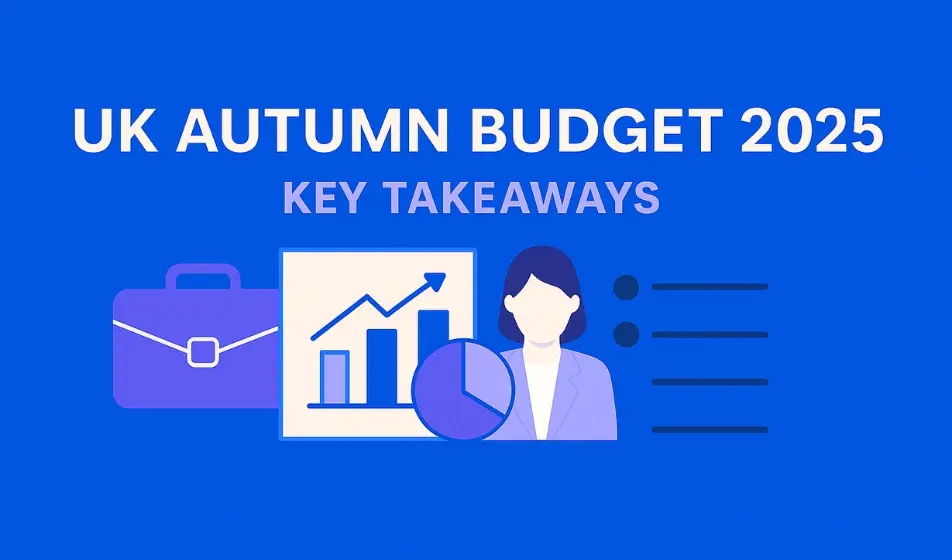In the next few months, the new Government will introduce several new employment regulations, which they’ve called the ‘New Deal for Working People’. Currently, we’re expecting the plan to be introduced as legislation by the end of the year.
For busy SMEs and HR teams, there’s a lot of uncertainty about what the changes will involve, when they’ll come into force and how far they’ll go. But whatever the details, investing in HR software is one of the best ways to make sure you’re prepared.
Here, we discuss the key challenges of HR compliance and how the right software can help.
We'll cover:
The changing landscape of employment law:
“At Orchard Employment Law, we see an influx of questions about upcoming changes every time there's an announcement in the media, such as the zero-hours contract ban or day one employment rights. But at this stage, we haven't got much detail and what we do know seems to be changing week-on-week.
Luckily, the changes won’t come into force overnight, and likely won’t be enforceable before 2025.”
- Jemma Fairclough-Haynes, CEO & Founder, Orchard Employment Law
Many of the policies that make up the upcoming bill were announced before the election, so we know the broad shape the legislation will take. Though the details remain limited at this stage, some of the biggest changes will include:
-
Day one working rights – All workers will be entitled to basic rights from day one, including unfair dismissal, parental leave, sick pay and others. Currently, some workers don’t gain these protections until two years after joining. It's also important to note, that unfair dismissal will be available to employees after a probation period - but the length of that probation period is yet to be defined.
-
Minimum wage – Changes to the minimum wage laws will likely include removing age bands and increasing protections for those working across multiple sites.
-
Flexible working – The Government has confirmed they will legislate for a right to request a 4-day working week and remote working opportunities.
-
Zero-hours contracts – These were expected to be banned entirely, though reports now suggest the changes won’t be as far-reaching as previously expected. The Bill suggests that employers will have to offer staff fixed hours based on previous working patterns - but staff will have the right to decline and opt to stay on zero-hour contracts.
-
Fire and rehire – Labour has proposed a ban on fire and rehire, though questions also remain about how far this will go.
While some details exist about the upcoming legislation, there aren’t currently enough for HR and SMEs to understand what changes they need to make and how they’ll influence their HR compliance workflows.
The role of HR software in compliance
“There are several steps HR teams can take to stay up to date, including signing up for ACAS, CIPD or setting up Google Alerts for keywords like 'UK employment law'. All these will send updates about changes.
Alternatively, HR tools like Breathe provide courses whenever new changes are published, which can be really helpful as well.”
- Jemma Fairclough-Haynes, CEO & Founder, Orchard Employment Law
HR compliance can be a nightmare of complexity. In fact, almost every task has compliance built into it.
That could involve pay and salary requirements, gender pay reporting, right-to-work checks – and much more. But with HR compliance software, it doesn’t have to be so difficult. Here are some of the main ways it can help:
-
Compliance checklists - The best HR tools understand compliance rules so you don’t have to. Checklists for common compliance tasks help you create a practical to-do list and ensure nothing slips between the cracks.
-
Document management – Combine all sensitive data into a single unified repository, ensuring data can be protected, retained and eventually deleted – according to GDPR requirements.
-
Onboarding and training tools – Onboarding is a particularly compliance-heavy process, including right-to-work checks, legal documents, sensitive personal information and more. The right HR software should offer standardised, self-service onboarding processes with all these requirements built in by design.
Key features to look for in HR compliance software
To simplify and accelerate your HR tasks, there are several features your chosen HR platform needs to offer. Here are some of the most important:
-
Regular updates – Compliance requirements change often – so your chosen software needs to move quickly with the times. Prioritise providers who offer regular updates and quickly add functionality to comply with laws.
-
Flexibility-first – Today’s workplaces increasingly prioritise flexibility around working hours and location. Indeed, the Government is planning to legislate to support this trend in upcoming bills. The right HR tool should offer features that support this new world of work, including automated flexible working requests.
-
Automated reporting and tracking – HR is generally responsible for compliance reporting such as right-to-work checks, gender pay reporting and more. This can be simplified through tools to generate reports, including all the details you need to stay compliant. Automated alerts for upcoming deadlines also ensure nothing slips between the cracks.
-
Employee self-service – Employees shouldn’t have to wait for busy HR workers to be free every time they want to download a document, change their details or submit a holiday request. Instead, the most common HR tasks should be available via self-service.
How to choose the right HR software provider
To get the most out of your HR software, it’s important to choose the right product. But with so many options available, where do you start?
Here are the most important factors to keep in mind:
-
Support and training - When new regulations come into force, you’ll need to train your team in the new processes and tasks. The best software should offer online training courses on topics like GDPR, information security, anti-discrimination and more. It should also regularly update this training material when new details are passed. Find out more.
-
Cost considerations - SMEs and small teams shouldn’t need to spend thousands just to get basic HR tools and functionality. Providers like Breathe offer as low a barrier to entry as possible – starting at just £24 a month for small teams. Calculate your costs here.
-
Contract duration - Some HR software providers lock their clients into long-term, multi-year agreements. This is an issue if the provider doesn’t keep up with new compliance requirements, because it stops you changing to one that does. Instead, prioritise tools that offer a flexible, subscription-based service.
-
ISO compliance – To keep your sensitive data secure, it’s important to choose a provider that’s ISO 27001 compliant. This is the best way to ensure the provider abides by security best practices like offering multi-factor authentication, providing uptime guarantees and encrypting sensitive information. Find out more.
How to stay ahead in a fast-changing world
“HR software tools like Breathe can make a huge difference when new legislation is passed.
They include push notifications to notify you of new changes and policy documents that you can quickly upload to switch to a new compliant workflow - as well as a range of training courses for new requirements. All in all, it's a really useful tool for staying up-to-date and compliant."
- Jemma Fairclough-Haynes, CEO & Founder, Orchard Employment Law
Today, the HR industry is waiting with bated breath for more detail about the upcoming changes. Until we’ve seen draft legislation, it’ll be difficult for us to really know how it’s going to affect our everyday tasks.
But one thing’s for sure: When the changes do come, having a licence to Breathe’s HR software is one of the best ways to make sure you’re ahead.
Ready to get started? Sign up for your free trial today.

Author: Matt Rooke
Matt is a freelance tech writer and content manager who specialises in HR and cybersecurity. Over his seven-year career, he's created content of all shapes and sizes for brands such as Dropbox, Microsoft, Heimdal, Learnerbly, NTT, IFS, and many others. His goal is to translate complex topics into straightforward, tangible and practical advice. When not writing, you can usually find Matt geeking out over languages, music or politics.






